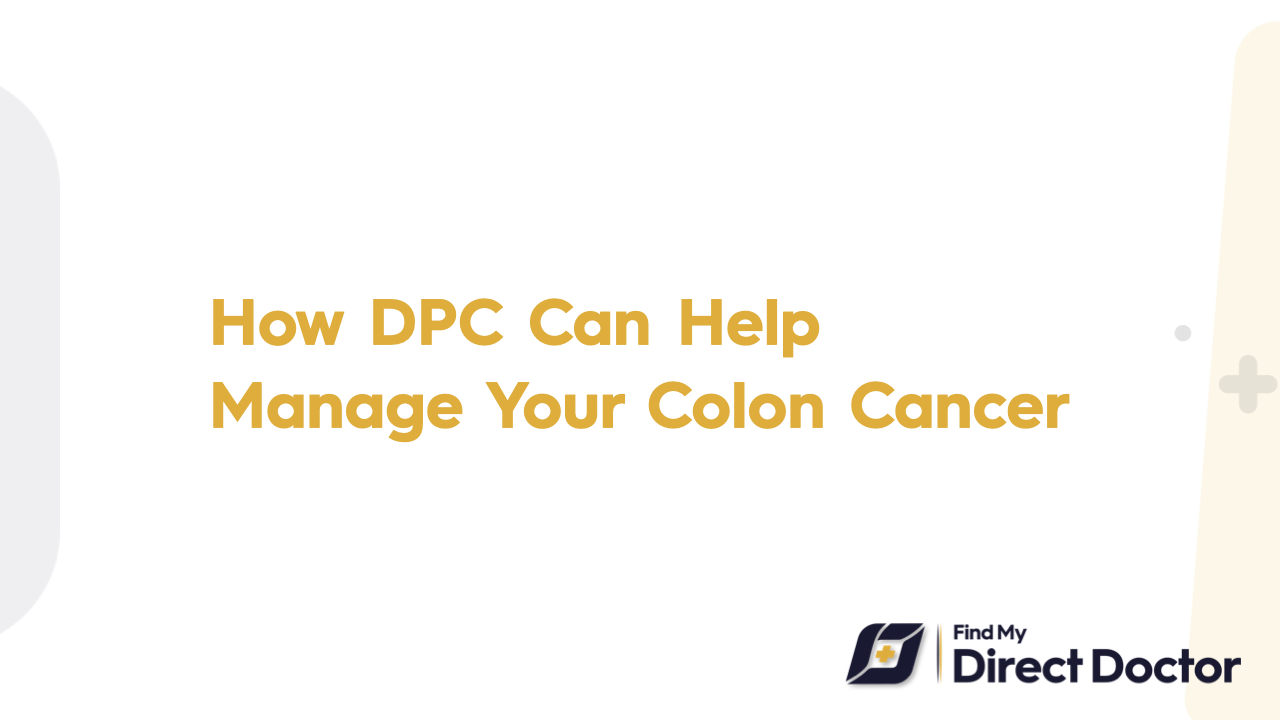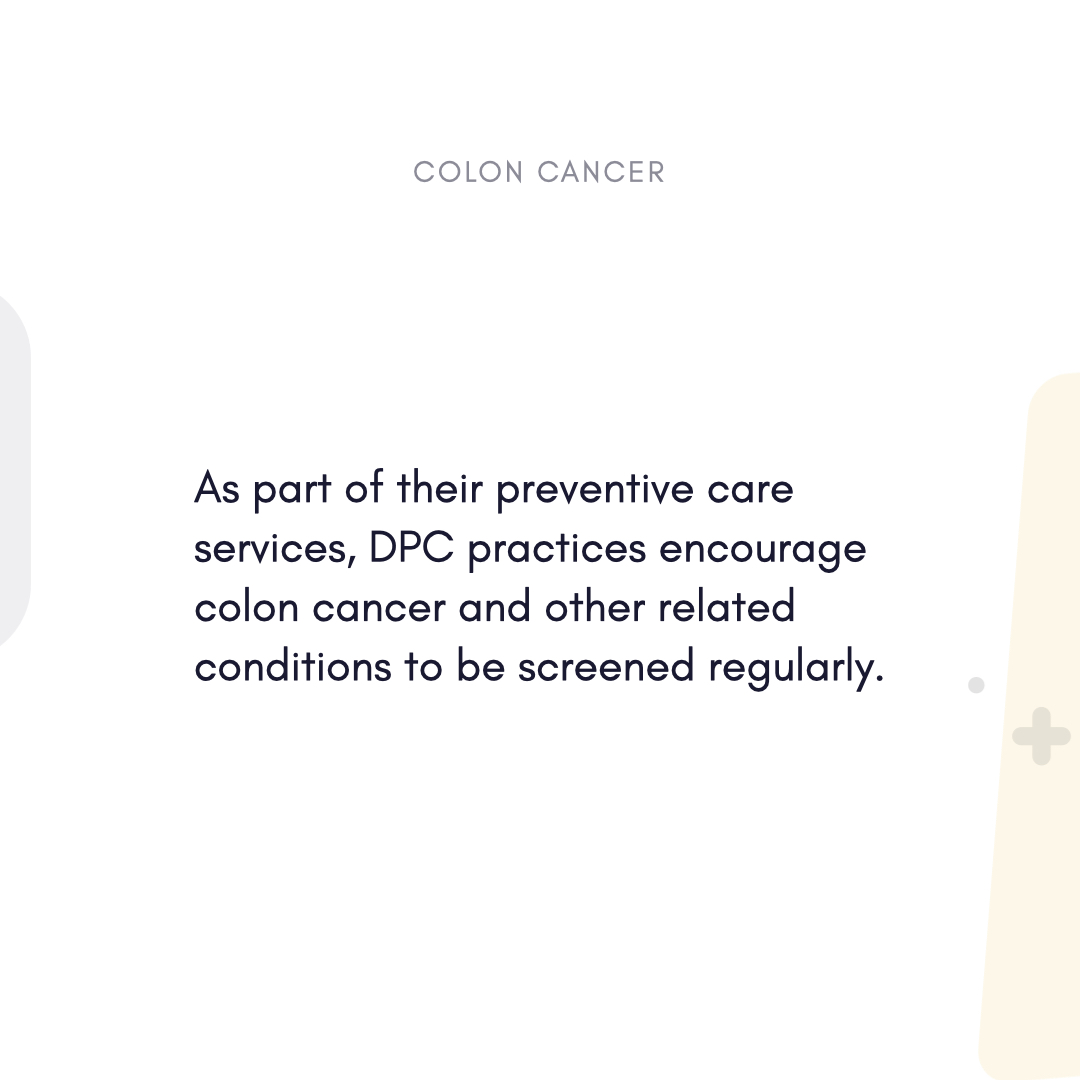Colon Cancer and Direct Primary Care (DPC): Elevating Prevention, Care, and Survivorship
Leading cause of cancer-related death worldwide, colon cancer responds best to early diagnosis and coordinated treatment. Direct Primary Care (DPC)—a membership-based model whereby patients pay a flat fee directly to their provider—closes gaps in conventional care by prioritizing access and continuity, enabling patients to navigate colon cancer with confidence. DPC offers a proactive, patient-centered framework to simplify screenings, personalize treatment, and support survivorship.

How DPC Enhances Colon Cancer Care (Early Detection & Coordination)
- Risk-based screening: Assess genetics (e.g., Lynch syndrome), family history, and lifestyle (diet, smoking) to tailor screening schedules.
- Early colonoscopy referrals: Detect precancerous polyps in high-risk patients.
- Improved screening rates: DPC models outperform traditional care in CRC screening and early tumor detection.
- Multidisciplinary coordination: Partner with surgeons, oncologists, and radiologists to integrate treatments (surgery, chemo, immunotherapy).
- Side-effect management: Use diet plans, medications, or acupuncture for neuropathy, fatigue, etc.
Precision Medicine Integration (Targeted Therapies)
- Guide genetic testing (MSI, KRAS mutations) to inform targeted treatments, boosting efficacy.
- Survivorship programs: Align with American Cancer Society guidelines for long-term health and recurrence monitoring.
Customized DPC Colon Cancer Treatment (Holistic Plans)
- Lifestyle coaching: Recommend low-red-meat, high-fiber diets, exercise, and smoking cessation to reduce recurrence.
- Comorbidity management: Address diabetes, obesity, and mental health (anxiety/depression) linked to cancer outcomes.
- Survivorship tracking: Monitor CEA levels, imaging, and manage long-term effects (bowel changes, neuropathy).
Why DPC Helps Colon Cancer Patients? (Access & Affordability)
- Quick access: Same-day visits address post-op complications or severe side effects.
- Cost transparency: Flat monthly fees (USD 50–150) reduce expenses for specialist visits, labs, and imaging.
- Continuity: One provider oversees prevention, treatment, and survivorship, ensuring comprehensive care.
Limitations (Key Considerations)
- DPC does not replace insurance for advanced treatments (chemotherapy, surgery).
- Complex cases require oncology specialists beyond DPC’s scope.
Final Notes (Patient-Driven Care)
- DPC transforms fragmented colon cancer care into a unified, patient-centered journey.
- Combines proactive screenings, precision medicine, and survivorship support for empowered health management.
- Customized care plans and seamless specialist coordination address individual needs.
- Partnering with a DPC provider offers medical oversight and a dedicated ally in achieving long-term wellness.






